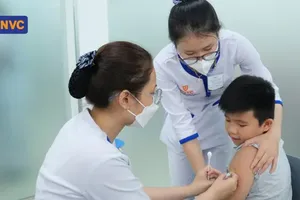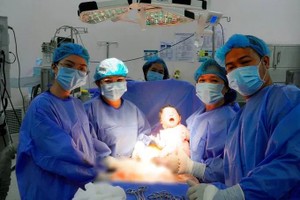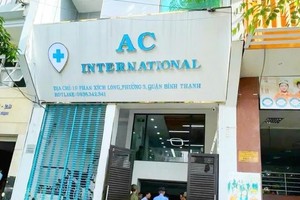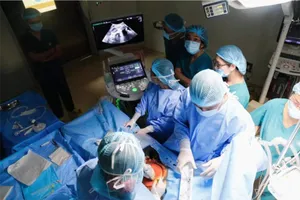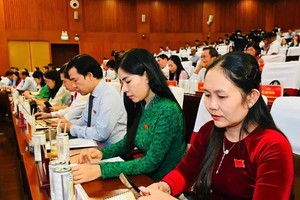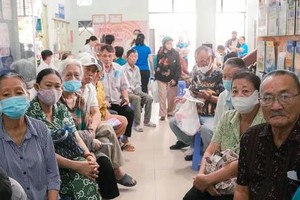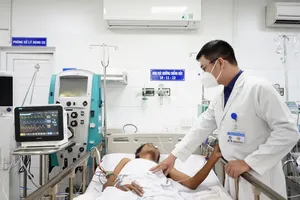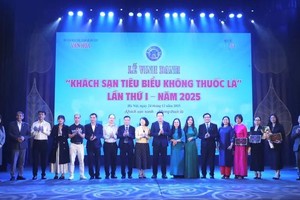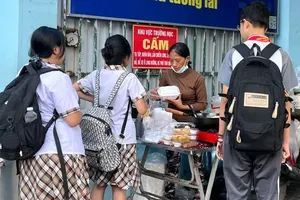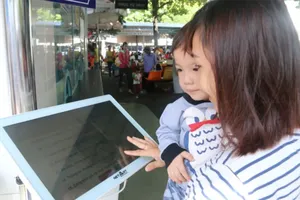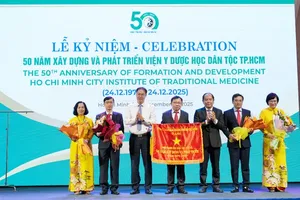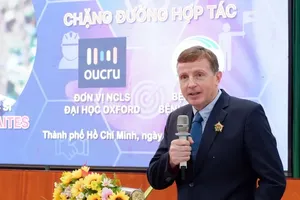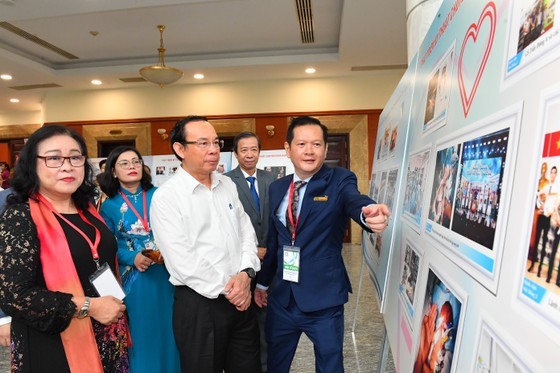 |
Secretary of the Ho Chi Minh City Party Committee Nguyen Van Nen watches an exhibition on the city's medical achievements at the conference (Photo: SGGP) |
The conference is also an opportunity for managers and experts in the medical field to share their experiences and knowledge, from which to build a close cooperation environment to help promote more available resources for better care of people’s health. Many experts said that it is necessary to have proper policies and strategies for the health sector’s synchronous development to attract foreigners who come to the southern metropolis for medical examination and treatment.
The conference was attended by Secretary of the Ho Chi Minh City Party Committee Nguyen Van Nen, Chairman of the municipal People's Committee Phan Van Mai, Head of the Organization Commission of the HCMC Party Committee Nguyen Phuoc Loc, Vice Chairman of Ho Chi Minh City People's Committee Duong Anh Duc, and Deputy Minister of Health Professor Tran Van Thuan.
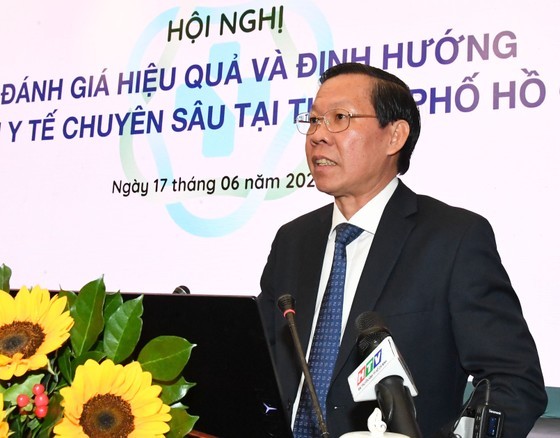 |
| Chairman of Ho Chi Minh City People's Committee Phan Van Mai (Photo: SGGP) |
Chairman of Ho Chi Minh City People's Committee Phan Van Mai said that the city healthcare sector takes care of not only city dwellers but also millions of patients from localities nationwide and internationally. In 2022, the number of inpatients and outpatients reached 35.3 million, accounting for 22.8 percent of the total number of patients nationwide. The city has 22 large hospitals which provide professional consultation for doctors in southern provinces. At the same time, the city has been making international cooperation and exchange in health.
According to the Chairman of the People's Committee of Ho Chi Minh City, being the health care center of the southern region, Ho Chi Minh City has been focusing on consolidating, developing and improving the quality of the grassroots health care system and managing non-communicable diseases in addition to deployment of health stations as per the family medicine principles and professional and technical skills at medical stations.
In addition, the city health sector has been focusing on improving the quality of medical examination and treatment, training physicians for general and specialized hospitals with an orientation towards high-tech medical development to meet the needs of Vietnamese patients and foreigners residing in the city.
Leaders of Ho Chi Minh City are grateful to medical professors and health workers who have made studies for the health sector’s growth; thanks to their great contribution, the city has made good achievements, said Mr. Phan Van Mai.
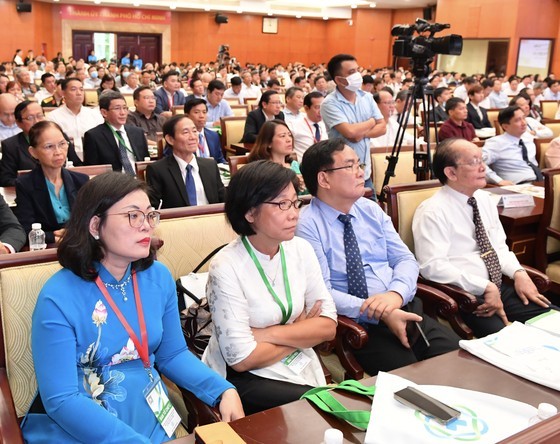 |
| Participants at the conference (Photo: SGGP) |
Mr. Phan Van Mai revealed that the city will focus on implementing 6 key tasks to help Ho Chi Minh City soon become an ASEAN regional health care center. Six key tasks include investment in perfecting the system of medical facilities according to planning, especially specialized hospitals; appropriate policies to encourage investment in hospitals.
According to Assoc. Prof. Tang Chi Thuong, Director of the Department of Health of Ho Chi Minh City, in order for the city to soon become a health care center of the ASEAN region, the city's health sector has learned the lessons of experience in recent years from countries in the region, thereby concluding that it is necessary to soon establish a center for training high-quality medical human resources; develop modern infrastructure, and deploy high-tech medical zones according to the model of institute-school.
Addedly, Dr. Thuong said that the city should develop specialized techniques to meet city inhabitants’ healthcare needs and build a network of specialized care. The city will strive to become a medical tourism destination while promoting the combination of modern medicine and traditional medicine.
However, medical staff in public hospitals are not good at foreign languages enough to serve foreign patients who come to the city for medical treatment. The health sector has not paid enough attention to promoting its image and achievements leading to a lack of information about the development of Vietnam's medical profession in the world.
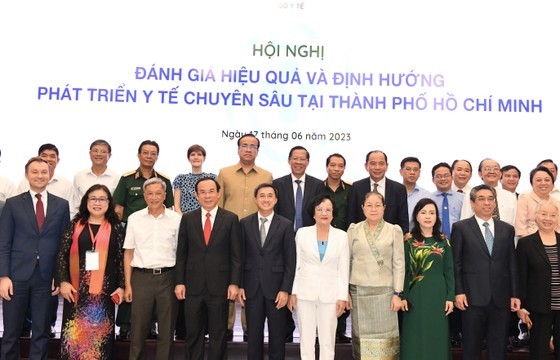 |
Leaders of HCMC and conference participants (Photo: SGGP) |
Deputy Minister of Health Tran Van Thuan said that Ho Chi Minh City needs to continue to invest in developing modern medical facilities.
According to Mr. Thuan, Ho Chi Minh City is the leading locality in the country in professional and technical development with the implementation of many difficult techniques for treating many serious diseases. Physicians are able to perform the most advanced medical techniques in the world.
In the coming time, in order to meet the increasing and diverse healthcare needs of city dwellers and patients from southern provinces, leaders of Ho Chi Minh City need to continue to invest in the development of modern and high-quality medical facilities on par with the region with the orientation to a specialized medical center of Southeast Asia upon appropriate investment in the health sector.
In addition, the city needs to have its own policy mechanism, especially the financial mechanism and the price mechanism for medical examination and treatment services for hospital operations and professional technology development.
At the same time, the city should take heed of the implementation of some vital projects including the development of the pharmaceutical industry, food safety and hygiene, mobilization of private health resources, and application of information technology and digital transformation in the medical field, and outpatient emergency care.
